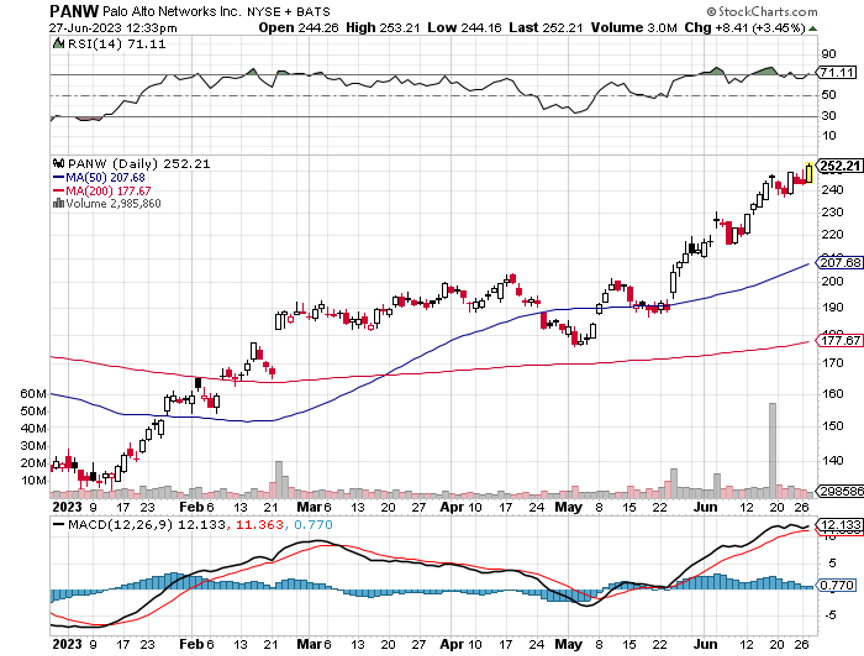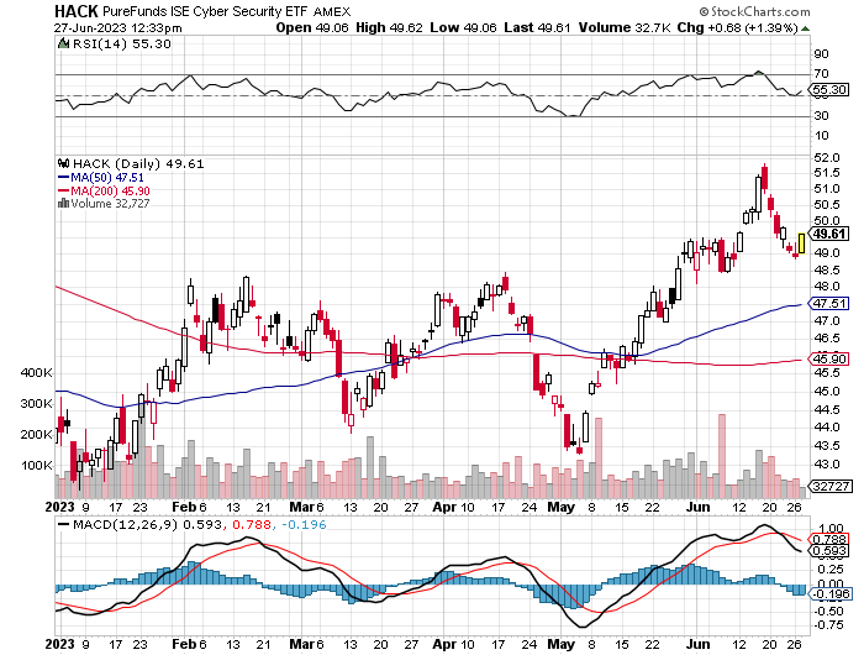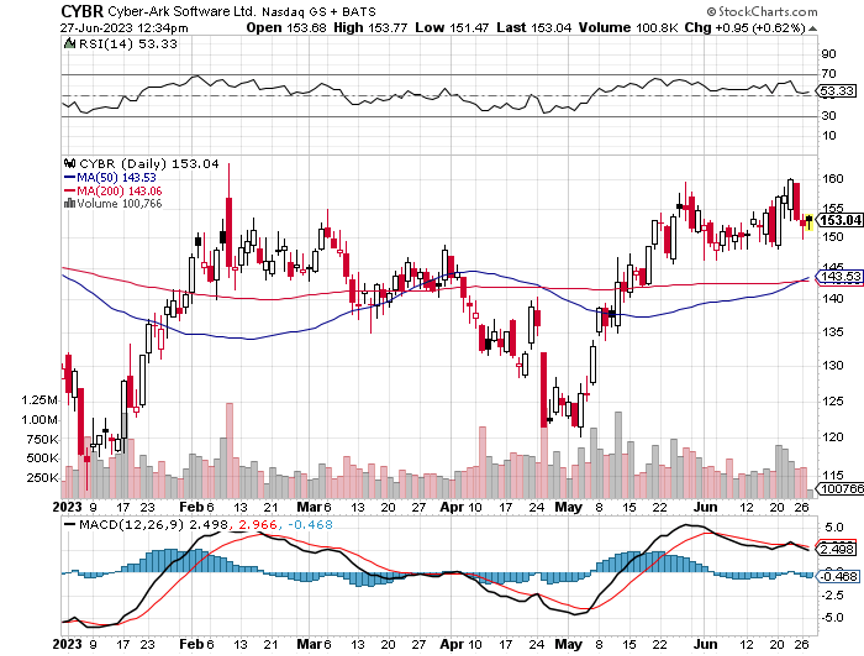Cybersecurity is Only Just Getting Started
One of the unfortunate aspects of the pandemic has been a tenfold increase in online fraud.
I get a dozen phishing attacks a day pretending to be Walmart, the Bank of America, and Amazon. And I never click on anything from Apple asking me to change my ID and password. The crooks are just getting too good.
However, where there are criminals there is investment gold.
The cybersecurity sector has been spurred upward with the rest of technology in recent months, creating a rare entry point on the cheap side of the longer-term charts.
The near-destruction of Sony (SNE) by North Korean hackers years ago has certainly put the fear of God into corporate America. Apparently, they have no sense of humor whatsoever north of the 38th parallel.
As a result, there is a generational upgrade in cybersecurity underway, with many potential targets boosting spending by multiples.
It’s not often that I get a stock recommendation from an army general. That is exactly what happened the other day when I was speaking to a three-star about the long-term implications of the escalating trade war.
He argued persuasively that the world will probably never again see large-scale armies fielded by major industrial nations. Wars of the future will be fought online, as they have been silently and invisibly over the past 20 years.
All of those trillions of dollars spent on big ticket, heavy metal weapons systems, like submarines and F-35 fighters ($122 million each) are pure pork designed by politicians to buy voters in marginal swing states.
The money would be far better spent where it is most needed, on the cyber warfare front. Needless to say, my friend shall remain anonymous.
The problem is that when wars become cheaper, you fight more of them, as is the case with online combat.
You probably don’t know this, but during the Bush administration, the Chinese military downloaded the entire contents of the Pentagon’s mainframe computers at least seven times.
This was a neat trick because these computers were in stand-alone, siloed, electromagnetically shielded facilities not connected to the Internet in any way. Here are essentially no secrets about anything anymore.
In the process, they obtained the designs of all of our most advanced weapons systems, including our best smart nukes. What have they done with this top-secret information?
Absolutely nothing.
Like many in senior levels of the US military, the Chinese have concluded that these weapons are a useless waste of valuable resources. Far better value for money are more hackers, coders, and servers, which the Chinese have pursued with a vengeance.
You have seen this in the substantial tightening up of the Chinese Internet through the deployment of the Great Firewall, which blocks local access to most foreign websites, including Wikipedia.
Try sending an email to someone in the middle Kingdom with a Gmail address. It is almost impossible. This is why Google (GOOG) closed their offices there years ago.
I know of these because several Chinese readers are complaining that they are unable to open my own Mad Hedge Trade Alerts, or access their foreign online brokerage accounts.
As a member of the Joint Chiefs of Staff recently told me, “The greatest threat to national defense is wasting money on national defense.”
Although my brass-hatted friend didn’t mention the company by name, the implication is that I need to go out and buy Palo Alto Networks (PANW) right now.
Palo Alto Networks, Inc. is an American network security company based in Santa Clara, California just across the water from my Bay area office.
The company’s core products are advanced firewalls designed to provide network security, visibility and granular control of network activity based on application, user, and content identification. To visit their website please click here.
Palo Alto Networks competes in the unified threat management and network security industry against Cisco (CSCO), FireEye (FEYE), Fortinet (FTNT), Check Point (CHKP), Juniper Networks (JNPR), and Cyberoam, among others.
The really interesting thing about this industry is that there really are no losers. That’s because companies are taking a layered approach to cybersecurity, parceling out contracts to many of the leading firms at once, looking to hedge their bets.
To say that top management has no idea what these products really do would be a huge understatement. Therefore, they buy all of them.
This makes a basket approach to the industry more feasible than usual. You can do this by buying the $435 million capitalized Pure Funds ISE Cyber Security ETF (HACK), which boasts CyberArk Software (CYBR and FireEye (FEYE) as its largest positions.
(HACK) has been a hedge fund favorite since the Sony attack.
For more information about (HACK), please click here.
And don’t forget to change your password.





